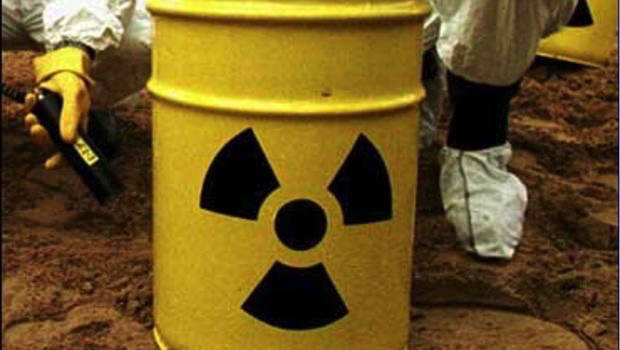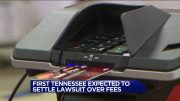A U.S. district judge said he wants to review records of communications within the U.S. Department of Energy so he can decide whether to turn them over to former Gov. Cecil Andrus, who said he suspects the department wants to keep secret its plans to ship commercial nuclear waste to Idaho.
Andrus filed a lawsuit against the DOE in October to force it to comply with the Freedom of Information Act and publicly share information relating to proposed waste shipments to the Idaho National Laboratory, east of Arco.
On Monday, Judge B. Lynn Winmill ruled that the DOE must hand over the documents to him within a week.
Andrus filed the FOIA request for the documents more than a year ago, but said in an interview that what he got back after six months was largely redacted, or blacked out. He said it was another example of DOE’s “institutional arrogance” and that the department “thinks they know more than us and they’ll do what they please.”
A spokeswoman for the DOE at INL said the lab declined to comment at this time due to the ongoing litigation.
The DOE has violated a 1995 agreement between the state of Idaho and the federal government by not meeting deadlines to remove radioactive clothes and materials and to process 900,000 gallons of liquid, radioactive nuclear waste stored in three tanks. Because of the violations, DOE requires a waiver from state Attorney General Lawrence Wasden to bring in any more waste.
Wasden has said he will not allow the shipments until he knows the DOE has a way to solidify the liquid waste and safely store it, which the department was required to do by 2012 under the original agreement. The plant built to solidify the liquid waste continues to have glitches and delays, putting into question its ability to complete the task.
According to various media sources, nuclear waste storage tanks at the Hanford Nuclear Reservation in eastern Washington have been leaking radioactive sludge into surrounding soil. The leaks are blamed for sickening 11 workers.
Andrus said the tanks at INL are made of a different material than those in Hanford, but that the contents are still liquid and the area is prone to seismic activity. That, he said, could spell disaster for any area farm or household that uses water from the aquifer, which underlies the storage site.
“Once those tanks start to leak, it gets into the underground area,” he said. “That’s a total, unthinkable, unacceptable disaster just waiting to happen.”
Idaho Senate Majority Leader Bart Davis and Rep. Jeff Thompson, both R-Idaho Falls, have fought with Wasden about prohibiting shipment of the spent commercial fuel, which contains “high burnup” fuel, a type that is used longer and comes out hotter. Activists contend that that type of fuel is building up at nuclear plants around the country and poses unacceptable risks, but the lawmakers argue that finding out how best to deal with that fuel should be a matter of priority for national security.
Todd Dvorak, a spokesman for the attorney general, said Wasden’s stance on staving off the spent fuel shipment remains the same. When asked whether his decisions may change if the DOE documents are released, Dvorak said, “We really don’t get into hypotheticals. Certainly we’d be curious to see them, but the fact remains that there’s a breach in the agreement and that’s something we need to see fixed.”
Dvorak did note that over the past year, communication has increased between the Attorney General’s Office and the DOE.
Andrus’ attorney, Laird Lucus, said, “In this day and age, government is supposed to be open, not secret. They’re not supposed to be playing hide the ball. It really looks like this agency is playing games.”
Email the writer: mbeck@mtexpress.com
Source: www.mtexpress.com




